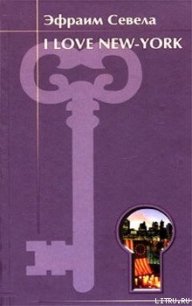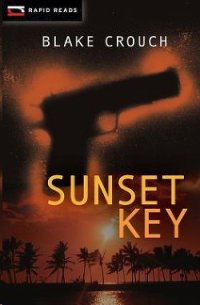Madame X - Wilder Jasinda (книги бесплатно без .TXT) 📗
He trails off again as Gino appears yet again, this time with plates of chicken parmesan with a side of pasta topped with a dollop of red sauce.
“So, things were . . . not good, but nothing crazy, I guess. Nobody went to jail, nobody got hurt. We smoked dope and surfed and sold a few dimes here and there. Nothing big, not enough to really call the attention of the more serious dealers, right? But then the summer before I’d have been a senior, I was seventeen, I think. Almost eighteen. Miguel’s cousin got approached by a big-time dealer from down by the border, dude called himself Cervantes. Wanted Miguel and Javier to be his mules, run some product south. Big cuts, big risk. I wasn’t in on it, ’cause I was white, you know? Most of the time, that didn’t matter, but for this, it did. So he approached them when I wasn’t around. They went with it. Ran the product, got paid out big time, figured they’d hit the jackpot, right? Yeah, that went fine for a few months, until Javier got in trouble. Got caught by a DEA border guard sting op. Javi turned snitch. Set Miguel up to take the fall. And Cervantes . . . he figured it was Miguel that was the snitch when a big shipment got intercepted and cost him a couple hundred grand. Miguel and I were surfing, like we always did early in the morning. Best waves, you know, when it’s just past dawn.” He ducks his head, gently swirling the dregs of his wine. “Cervantes and three of his soldiers were on shore, waiting for us. Didn’t say a word, just—just lit him up. A dozen slugs to the chest. Right in front of me. That was it. No threats, no warnings, no interrogation. Didn’t say shit to me, either. Like, obviously if I said anything to the cops, I’d be next. Miguel was my best friend, man. He was like family, you know? We’d been friends since third grade. Blam-blam-blam, dead. Right in front of me.”
“My God, Logan.”
He bobbles his head side-to-side. “What was I supposed to do? I knew I’d be next. Either I’d be his mule—which would land me in jail, eventually—or I’d wind up dead. Well, one day I happened to walk past an armed forces recruitment office, and this guy was standing outside smoking a cigarette, wearing a badass uniform, badges and a real medal and shit. Stopped me, asked me what I was up to. Made the army sound like a good gig. A good way out of the shit I’d found myself tangled up in. So I joined the army. And honestly, it was the best thing for me. Got shipped to Kuwait. Turned out I had a knack for engines, and they needed mechanics to fix up the trucks and tanks and shit. Ended up getting my diploma and a set of skills and some money in the bank. But then, like I told you before, when my four years were out, I ended up stuck in St. Louis, met Philip, the Blackwater guy . . . got my ass recruited again. This time, I got combat training. They put a gun in my hands, sent me to Iraq, and paid me huge amounts of money to hang my ass out the side of a helicopter. Had as much of a knack for nailing insurgents from a hundred yards away out the side of a moving helicopter as I did for cleaning sand out of piston chambers. Did that for . . . too long. Felt like a badass, you know? The regular army and Marine guys hated us, but that was just because we got paid quadruple what they made to do the same thing.”
“Quadruple?”
He nods. “Hell, yeah. Easily. Danger pay, right? And I liked the danger. Didn’t have anyone back home waiting for me, and I honestly didn’t give a shit what happened to me.”
“And then you got shot,” I suggested, sensing the shape of what came next.
“And then I got shot,” he agreed. “Some asshole with an AK got lucky. I mean, there was no way he could have made that shot on purpose, you know? Way too far away, moving way too fast . . . but that didn’t stop him from trying. We wore bulletproof vests, of course, but there was an early-morning incident with an IED and an ambush, so we got scrambled and I forgot the vest in my rush to get on the helo. Took the two to my shoulder, no big deal, wouldn’t have been life-threatening. But then he shoots again, and a round hits me down low. You saw it.” He indicates his ribs, and I can see the puckered wound in my mind’s eye. “Good thing I was strapped in, let’s just say that. They hauled me back in, got me to a medic, shipped me stateside. That was it for me, as far as combat went. But I spent a long-ass time on my back, recuperating. Thinking. I’d narrowly avoided death twice. Cervantes should have killed me. Probably would have, eventually, if I’d stuck around. But he didn’t, and I ran off with the army. So then I took the bullet to my stomach, and it nearly killed me. Nicked my lung, permanently compromised my lung capacity. Narrowly missed hitting a bunch of other organs and my spine. It was bad. Real bad. And you spend enough time horizontal, thinking about how close you came to dying, realizing you should be dead, you start to rethink your priorities.”
“What conclusions did you come to?”
“That I had to make something of myself. I’d survived when I shouldn’t have. I was alive, and I mean I guess it sounds like a cliche, but I felt like I’d been given a second chance. One thing led to another, and I ended up in Chicago, working for a flipper, a guy who buys foreclosed houses, fixes them up, and sells them at a profit. I had money, but I needed to stay busy. Learned enough to do it myself, flipping houses on my own. This was a big thing for a while, back when the real estate market was going gangbusters. I made a mint, and decided to go bigger. Bought a bar that’d gone under, owner ran out of money. Renovated it, hired some folks who knew shit about running a bar, sold it for a big profit. That earned me deeper pockets, let me take bigger risks for bigger rewards. Most of them paid off, some didn’t—and every time I got a big payout, I used it to fund the next deal. Learned other skills, learned to recognize when something will pay off and when it’s a bust. Got into technology development, bought some other companies . . .”
“And then you found yourself on the losing end of a bad deal.”
He nodded. “Yeah. But that’s a whole different story.”
“And one you don’t like to talk about.”
“Right.” He eyes me. “Back to you. How’d you end up with Caleb?”
Everything inside me freezes. I don’t know how to answer. I don’t know how to talk about Caleb. How to explain it.
“He was there when I had no one,” I end up saying. It’s true enough.
Logan nods, but it’s the kind of nod that implies he realizes I’m keeping back more than I’m saying. “How about I offer up some really . . . personal information? So you see I’m for real. I just want to know. I’m not going to judge you or try to . . . I don’t know. I just want to know.”
“What kind of personal information?” I can’t help asking.
A pause, as Gino brings yet another dish, something else kind of like lasagna, wide rolls of pasta in sheets, stuffed with ricotta and ground sausage, doused in marinara.
“Did you see the painting?” Logan asks.
“Starry Night,” I say. “Yes, I saw it. I wondered about that.”
“You know, Van Gogh only ever sold a couple paintings in his lifetime, and that was one of them. But that particular version of Starry Night was actually only one of dozens he did that were similar. He painted them from an asylum in France. What we’d call a psychiatric home now. It was a lunatic asylum for the wealthy. He was chronically depressed, suffered a mental break. Cut his ear off, I guess, or part of it. Admitted himself there, to Saint-Paul de Mausole. He had a whole wing to himself, and he’d sit in this room he’d made into his studio, and he’d paint the view, over and over and over. Different perspectives, trying different techniques. Day, night, close up, far off, everything. There’s another one, called Starry Night over the Rhone. Anyway, he’d just paint the view from that room over and over again. But that one, the one we both have copies of, it’s something special. He was a deeply troubled man, Van Gogh, and that painting, I guess to me it just . . . echoes things I sympathize with. That deal that went wrong . . . I ended up in prison. I don’t want to go into the details, but they’d let us out into the yard during the day, so we could lift weights and all that cliche bullshit. The view from the yard, there was this hill in the distance with some trees on it, and birds would fly in from all directions. I can see it now, the grass heading off into the distance, with yellow dandelions in patches here and there. Then the hill, and the trees. I don’t know what kind, oak, maybe? Thick, huge, with these massive spreading branches. And I’d be there in the yard, in the crazy fucking heat, staring at that stand of trees and the shadows they cast, daydreaming of being up there on the hill, in the shade. It was a scene I could paint from memory, even now, if I were able to draw for shit. And Starry Night, it’s . . . there’s this sense of distance, peace—I don’t know, it’s hard for me to put it into words. But it just reminds me of how I felt, staring out at that hill every day.”



